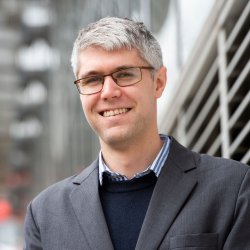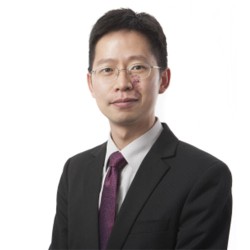Anaerobic digestion process modelling, optimisation, and control using artificial intelligence
As part of a recently-funded UKRI ‘Artificial intelligence research to enable UK's net zero target’ project, this work will use deterministic optimisation techniques, surrogate modelling, artificial intelligence and process systems engineering to help develop a whole-site optimisation framework for anaerobic digestion to help the UK achieve their net-zero ambitions.
Start date
1 October 2023Duration
4 yearsApplication deadline
Funding source
The Surrey Institute for People-centred AIFunding information
Full tuition fee waiver p.a. (UK students) and stipend at UKRI rates p.a. (£18,622 for 2023-24).
About
We are seeking a highly motivated PhD candidate wishing to advance their career in a research-driven, interdisciplinary environment, beginning 1 July 2023 or soon after.
Anaerobic digestion (AD) is a well-established technology where anaerobic microorganisms break down organic matter in biomass, producing biogas. AD is noted as an important part of the UK Net Zero Strategy: Build Back Greener strategy as it can avoid methane emissions at landfills by processing 46 million tonnes of organic material each year, while generating carbon-neutral biogas for electricity and home heating, and organic fertilizers as digestate. Currently, AD operators are limited in feedstock options and operate very conservatively due to the complexities and challenges of understanding the complex AD process.
The PhD student will work as part of a research team including several industrial partners, funded by the UKRI’s ‘artificial intelligence research to enable UK's net zero target’. They will undertake a range of research activities associated with the ‘Artificial Intelligence Enabling Future Optimal Flexible Biogas Production for Net-Zero’ project.
The student will specifically be developing integrated optimisation solutions for real-time optimisation and control of an anaerobic digestion site, working alongside a large research team and industrial partners. The project will involve developing and using advanced methods for real-time optimisation and control, machine learning, techno-economic and sustainability assessment, estimating the environmental impact of anaerobic digestion in the UK. It is anticipated that a working demonstrator at a partner anaerobic digestion site is developed, providing the post holder with experience in real-world impact and application of their work.
There will be opportunities to collaborate with world-class researchers at other leading academic institutions, as well as with our industrial partners. We are seeking enthusiastic and motivated applicants with an interest in computational optimisation and process systems engineering.
About the School
The successful candidate will be supervised by Dr Michael Short and Prof Tao Chen and will be based in the School of Chemistry and Chemical Engineering. The School has a long history of excellence in computational and process systems research. We have a vibrant, interdisciplinary group of researchers working in a variety of areas to solve global problems in pharmaceuticals, energy, wastewater treatment, and catalysis.
The information and process systems engineering research theme holds regular research seminars and social events to provide a supportive and friendly team atmosphere. You will receive comprehensive research training and opportunities to participate in conferences, workshops, and seminars to develop professional skills and research network.
Eligibility criteria
Open to candidates who pay UK/home rate fees.
Applicants are expected to hold a first or upper-second class degree in a relevant discipline (chemical engineering, computer science, mathematics or other engineering/science disciplines with significant computational elements) or equivalent overseas qualification, or a lower second plus a good masters degree (distinction normally required).
Some coding experience in a programming language (e.g., Python, GAMS, MATLAB, or Julia) are essential for the role. Experience in mathematical optimisation modelling, open-source software, and/or process simulation is desirable.
How to apply
To apply, please send your CV and cover letter to Dr Michael Short (m.short@surrey.ac.uk) and start an application via the Chemical and Process Engineering PhD programme page.
In place of a research proposal you should upload a document, clearly stating the studentship title and supervisor on your application.
Studentship FAQs
Read our studentship FAQs to find out more about applying and funding.
Application deadline
Contact details

Studentships at Surrey
We have a wide range of studentship opportunities available.

